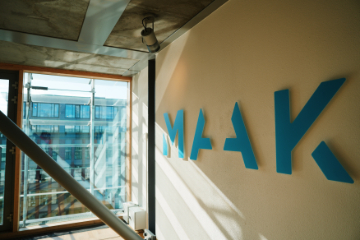
Commercial litigation in the Netherlands involves resolving legal disputes between businesses and other market participants. A company may unexpectedly face conflicts of various kinds, placing considerable pressure on operations. These disputes can severely impact the business’s ability to function smoothly. Therefore, they require a swift, effective response from specialists trained to achieve results.
Key Takeaways
- Commercial litigation in the Netherlands is handled by the District Court (“rechtbank“), Court of Appeal (“gerechtshof“), and Supreme Court (“Hoge Raad“), with a specialized Netherlands Commercial Court for international disputes (if agreed).
- A Dutch attorney is required for representation in the Dutch courts, with flexible fee arrangements, including hourly rates, result-based fees, and fixed/flat fees.
- The general limitation period under Dutch law for filing commercial claims in the Netherlands is five years, with the possibility of pre-action discovery and interim reliefs under Dutch law.
- Foreign judgments are recognized and enforceable in the Netherlands, with EU member state judgments being directly enforceable without further declaration.
- Mediation is an alternative dispute resolution method, with the Netherlands Mediation Institute promoting mediation to resolve commercial disputes efficiently and cost-effectively.
Types of commercial disputes in the Netherlands we handle
Our expertise in the Netherlands covers a broad range of disputes under Dutch law, including:
- Contractual disputes (breach of contract) Disagreements over purchase contracts, distribution agreements, importer contracts, engineer agreements, commercial agency contracts, and Dutch franchise agreements, including matters about force majeure under Dutch law, Dutch hardship clauses, liability limitations, general terms and conditions, termination, contract dissolution, contractual suspension, and CISG (Vienna Sales Convention), warranties in acquisition agreements between a former shareholder (seller) and a new shareholder (buyer).
- Conflicts with Business Partners: Disputes with suppliers, financiers, clients, or contractors.
- Discussions with supervising authorities, such as the “ILT”, “NVWA” and “Arbeidsinspectie”.
- Professional Liability Claims: Disputes involving professional advisors like attorneys, accountants, notaries, or tax consultants.
- Bankruptcy-Related Issues: Disputes with bankruptcy trustees regarding transactions conducted shortly before insolvency.
When significant interests are at stake, a deep understanding of legal rules is crucial. Commercial litigation demands in-depth expertise in procedural law. At MAAK Advocaten, we represent our clients in court proceedings in the Netherlands, including before district courts, courts of appeal, and even the Dutch Supreme Court. We handle main proceedings, summary proceedings, and international arbitration, including enforcement of arbitral awards.
Dutch Court Structure for Commercial litigation
Traversing the complexities of commercial disputes in the Netherlands requires a deep understanding of the country’s court structure. You’ll need to navigate various courts, each with its own jurisdiction and procedures.
For commercial disputes, the Dutch court system consists of the District Court, the Court of Appeal, and the Supreme Court. You’ll typically start at the District Court, where cases are heard in first instance. If you’re not satisfied with the outcome, you can appeal to the Court of Appeal, and subsequently, the Supreme Court.
Familiarity with the procedural law is essential for successful litigation. You’ll need to understand the rules and procedures governing each court to guarantee your case is handled efficiently and effectively. A solid grasp of the court structure will help you make informed decisions and achieve a favorable outcome.
Best For: The Netherlands Commercial Court (NCC) is best for medium-sized and large enterprises, listed companies, and their shareholders and executives seeking a specialized and cost-effective platform for resolving international commercial disputes.
Pros:
- Proceedings are conducted in English, eliminating language barriers and facilitating international dispute resolution.
- The NCC offers a flexible process with a focus on early risk assessment and clear planning, enabling clients to maintain control over the litigation process.
- The court provides a viable alternative to international arbitration and litigation, with experienced commercial dispute judges handling cases.
Cons:
- The NCC may not be suitable for small businesses or individuals due to the complexity and costs associated with international commercial disputes.
- The court’s jurisdiction is limited to commercial disputes, which may not cover all types of disputes that may arise.
- The NCC’s procedures and rules may be unfamiliar to companies or individuals without prior experience with international commercial litigation in the Netherlands.
Commercial litigation procedure in the Netherlands
The Netherlands’ commercial litigation procedure is marked by a structured framework that governs the handling of commercial disputes. When you engage in commercial litigation in the Netherlands, you’ll find that the process is characterized by a clear set of rules and timelines. The general limitation period for filing claims is five years, but specific limitation periods may apply to certain types of claims. You can seek pre-action discovery of documents related to the legal relationship, which can help you prepare your case. Our Dutch litigation attorneys in the Netherlands would be happy to be of assistance.
As you navigate the litigation process, you’ll need to comply with the rules of procedure, which are designed to guarantee a fair and efficient resolution of disputes. The courts in the Netherlands are organized in a hierarchical structure, with the Supreme Court serving as the highest authority. You can appeal court decisions within three months to one of the four courts of appeal, and the Supreme Court will assess the correct interpretation and application of the law. Throughout the process, you’ll need to adhere to the prescribed timelines and procedures to certify that your case is heard and resolved in a timely manner.
Legal representation in Dutch Courts
When engaging in commercial litigation in the Netherlands, you’ll need to ponder how to effectively present your case in court. You’re not required to have legal representation in subdistrict court proceedings, but you’ll need a Dutch litigation attorney or cases in courts of law, appeal, and the Supreme Court. In these instances, you’ll need to appoint a Dutch attorney to represent you, as foreign attorneys are generally not allowed to represent clients in Dutch courts.
However, a judge may permit a foreign attorney to assist in the proceedings. Your Dutch attorney will have discretion over fee arrangements, which can include hourly rates, result-based fees, fixed/flat fees, and collection rates. They must comply with professional conduct rules, but you can discuss and agree on a fee structure that suits your case. You can also use a combination of fee methods, allowing you to tailor your fee agreement to the specifics of your case.
Legal fee arrangements in the Netherlands
When it comes to legal costs and fees in the Netherlands for commercial litigation, you have several things to kewep in mind. Attorneys in the Netherlands have the discretion to determine their fee structures, as long as they comply with professional conduct rules. You can expect to encounter hourly rates, result-based fees, fixed/flat fees, and collection rates. However, “no cure no pay” fee structures aren’t permitted.
You’ll find that there are no fixed legal fees established by law, allowing for flexibility in fee agreements. This means you can negotiate a fee arrangement that suits your specific case. Attorneys may also combine different fee methods to create a hybrid approach. For instance, they might charge an hourly rate for certain tasks and a fixed fee for others.
This flexibility enables you to tailor your fee arrangement to your needs and budget. When engaging a lawyer, be sure to discuss and agree on a fee arrangement that aligns with your expectations and provides transparency on costs. By doing so, you’ll be better equipped to manage your expenses and navigate the Dutch commercial litigation landscape.
Time limits for commercial disputes under Dutch law
Under Dutch law, you face a general limitation period in the Netherlands of five years for commercial claims, unless a specific period is established by law. This means that you have five years to initiate a claim, or you risk losing the right to seek legal protection. The limitation period doesn’t extinguish the right itself, but rather your ability to seek redress.
You should be aware of the following key points regarding time limits for commercial disputes under Dutch law:
- General limitation period: Five years for commercial claims, unless a specific period is established by law.
- Limitation period doesn’t extinguish the right: It only affects your capacity to seek legal protection.
- Objection required: The limitation period isn’t applied automatically; the debtor must raise an objection to invoke it.
- Interrupting the limitation period: Initiating a claim or taking other legal action can interrupt the limitation period, allowing you to pursue your claim.
It is essential to be mindful of these time limits to safeguard you don’t miss the opportunity to pursue a valid claim. If you’re unsure about the applicable limitation period or the best course of action, it’s recommended that you consult with a qualified lawyer.
Pre-Action discovery procedures in the Netherlands
Several key features characterize pre-action discovery procedures in the Netherlands. You can seek pre-action discovery of documents related to the legal relationship before initiating a claim. This allows you to obtain relevant evidence and information before filing a lawsuit, helping you assess the merits of your potential claim and facilitating an early resolution.
When requesting pre-action discovery, you must demonstrate a legitimate interest in obtaining the desired information. Dutch courts have broad discretion in granting pre-action discovery requests, and they’ll typically approve your request if you can show that it’s necessary to assess the strength of your claim.
Role of Mediation in Dutch commercial litigation
Frequently, mediation plays a pivotal role in resolving commercial disputes in the Netherlands, offering a viable alternative to lengthy and costly court proceedings. As a party involved in a commercial dispute, you can opt for mediation to resolve your dispute efficiently.
The Mediation Institute, established in 1995, handles mediation cases, and registered mediators assist parties in reaching an agreement.
You’ll find that mediation offers several advantages, including:
- Confidentiality: Mediation proceedings are confidential, ensuring that sensitive business information remains private.
- Flexibility: Mediation allows for flexible scheduling and can be conducted in a shorter timeframe compared to court proceedings.
- Business relationship preservation: Mediation helps preserve business relationships, which can be damaged by lengthy and contentious court proceedings.
- Cost-effectiveness: Mediation can be more cost-effective than court litigation, as it eliminates the need for extensive documentation and court appearances.
Attorneys in the Netherlands can provide guidance and representation in mediation proceedings, ensuring that your interests are protected throughout the process. By opting for mediation, you can resolve your commercial dispute efficiently and effectively.
Initiating a Commercial Claim under Dutch law
When mediation isn’t viable or hasn’t resolved your commercial dispute, you can initiate a claim under Dutch law. To begin, you’ll typically have a bailiff serve a writ of summons on the defendant, who must respond within six weeks. Before initiating a claim, examine the general limitation period for commercial claims, which is five years in the Netherlands. However, some claims have shorter or longer periods, so verify the specific timeframe for your case.
You may also want to inspect requesting pre-action discovery of documents related to the dispute, which can provide valuable information before proceeding with a claim. Once you’ve initiated a claim, the Dutch court typically schedules an oral hearing within 3-5 months. After the hearing, the court generally renders a judgment within six weeks.
If your case requires urgent attention, you can opt for summary proceedings. This expedited process applies if your claim is highly plausible, urgent, and there’s no risk of restitution. By understanding these steps and timelines, you can effectively navigate the process of initiating a commercial claim under Dutch law.
Interim Reliefs and Evidence Requirements in the Netherlands
Understanding the rules governing interim reliefs and evidence requirements in the Netherlands is essential to presenting a strong case. Dutch courts have broad discretion in evaluating all evidence provided, including recordings, witness testimony, and expert reports.
You can obtain interim measures, such as preliminary injunctions in the Netherlands or Dutch freezing orders, but you must demonstrate that your claim is highly plausible, urgent, and without risk of restitution. The burden of proof typically lies with you as the plaintiff, and you can use any type of admissible evidence to substantiate your claims.
The following are key considerations for interim reliefs and evidence requirements in the Netherlands:
- Interim measures: Preliminary injunctions or freezing orders can be obtained, but require a highly plausible, urgent, and unrecoverable claim.
- Evidence: Dutch courts examine all evidence, including recordings, witness testimony, and expert reports.
- Burden of proof: The plaintiff typically bears the burden of proof and can use any admissible evidence.
- Costs: Costs of legal representation are partially recoverable, except in intellectual property enforcement cases.
Evaluation of Evidence and Expert Opinions
During the proceedings in the Netherlands Commercial Court, evaluating evidence and expert opinions in the Netherlands requires careful consideration to build a strong case. You must assess the relevance and reliability of the evidence presented, as well as the credibility of expert witnesses. The court evaluates the evidence based on its relevance, reliability, and probative value.
Expert opinions, in particular, play a pivotal role in complex commercial disputes, providing objective insights and specialized knowledge. When evaluating expert opinions, you should consider the expert’s qualifications, experience, and methodology. The court also examines the expert’s independence and potential biases. You must guarantee that the expert’s opinion is based on a thorough analysis of the facts and evidence.
Effective evaluation of evidence and expert opinions enables you to present a robust case and increase the likelihood of a favorable outcome. By meticulously assessing the evidence and expert opinions, you can build a strong foundation for your argument and navigate the complexities of commercial litigation in the Netherlands Commercial Court.
Cost Recovery and Enforcement of Judgments in the Netherlands
In Dutch commercial litigation, recovering costs and enforcing judgments are essential aspects of the litigation process. As a party involved in a commercial dispute, you’ll want to understand the rules governing cost recovery and enforcement of judgments in the Netherlands.
You can recover a portion of your legal representation costs if you’re the successful party, except in intellectual property enforcement cases. However, the recoverable costs are determined by a fixed scale set by the government, not the actual costs you incurred.
Here are key aspects of cost recovery and enforcement of judgments in the Netherlands to ponder:
- Recoverable costs: You can recover a portion of your legal representation costs, but only up to a fixed amount determined by the government.
- Immediate enforcement: Judgments rendered by Dutch courts can be immediately enforced by a bailiff seizing the losing party’s assets, regardless of any appeal filed.
- Pre-judgment attachment: You can obtain a pre-judgment attachment order to secure the satisfaction of a potential future judgment, provided certain requirements are met.
- Enforceability during appeal: The losing party’s appeal doesn’t automatically suspend the enforceability of the judgment, which can still be executed during the appeal process.
Recognition of Foreign Judgments in Netherlands
Under Netherlands law, you can have a foreign judgment recognized and enforced, provided certain requirements are met. If the judgment originates from an EU member state, you can enforce the judgment in the Netherlands without needing a further declaration. However, for non-EU judgments, you’ll need to check if a treaty exists between the Netherlands and the country of origin. If no treaty exists, you’ll have to initiate new proceedings.
The Dutch courts generally issue an enforcement order if the foreign court had proper jurisdiction and fair trial standards were met. You’ll need to demonstrate that these conditions were satisfied.
| Origin of Judgment | Enforceability in the Netherlands |
|---|---|
| EU member state | Enforceable without further declaration |
| Non-EU country with treaty | Enforceable if treaty requirements are met |
| Non-EU country without treaty | New proceedings required |
| Foreign court with proper jurisdiction and fair trial standards | Enforcement order typically issued |
The recognition and enforcement of foreign judgments in the Netherlands are governed by EU regulations and international treaties, providing a well-developed legal framework for clarity and predictability. This framework enables you to navigate the process efficiently and effectively.
Frequently Asked Questions
Are NCC Judgments Recognized and Enforceable Outside the Netherlands?
You can expect NCC judgments to be recognized and enforceable outside the Netherlands, as the country is a signatory to the Brussels I Regulation and the Hague Convention, facilitating cross-border enforcement of judgments within the EU and beyond.
Can Foreign Lawyers Represent Clients in NCC Proceedings in the Netherlands?
You can appoint foreign lawyers to represent your clients in NCC proceedings, but they must team up with a Dutch attorney who’s authorized to practice law in the Netherlands; that’s a mandatory requirement, no exceptions allowed.
Are NCC Proceedings Confidential and Private?
You’re seeking confidentiality and privacy in NCC proceedings; although, as a general rule, court records are publicly accessible in the Netherlands, you can request certain documents remain confidential and sealed by the court upon showing good cause.
Can NCC Judgments Be Appealed to a Higher Court?
Facing fairness fears, you’ll find that NCC judgments can be appealed to the Amsterdam Court of Appeal, and subsequently to the Dutch Supreme Court, ensuring thorough scrutiny and safeguarding your right to a rigorous review process.
Does the NCC Provide Emergency Arbitration Services?
You can’t get emergency arbitration services from the NCC; however, you can utilize the regular Dutch courts for urgent matters; still, expedited NCC proceedings can be organized if the circumstances of your case allow for it.







